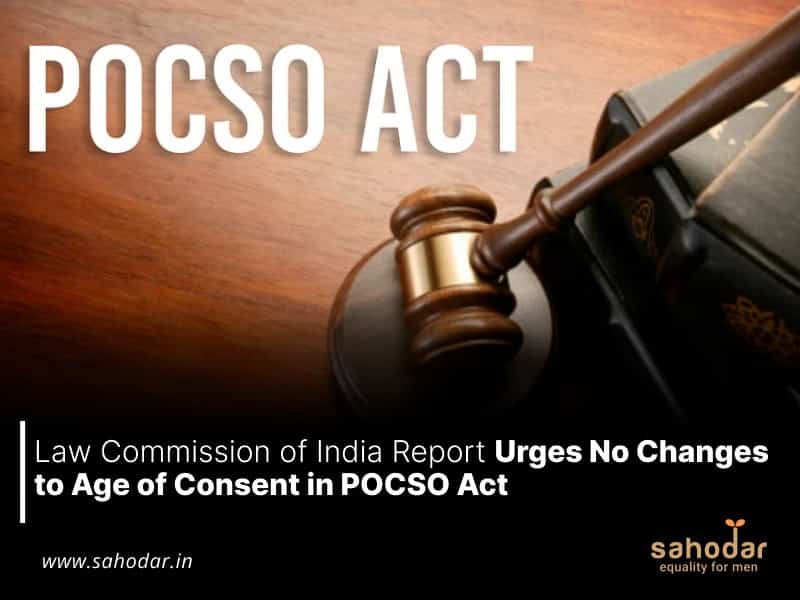The Commission has proposed amendments to address situations where there is approval, even if not consent in the eyes of the law, from children aged 16-18 in intimate relationships.
The 22nd Law Commission, led by Justice Ritu Raj Awasthi, has delivered a report to the Union Ministry of Law and Justice concerning the age of consent within the Protection of Children from Sexual Offences (POCSO) Act.
The Commission firmly believes that the current age of consent, which is set at 18 years, should remain unchanged.
“After a careful review of existing child protection laws, various judgements and considering the maladies of child abuse, child trafficking and child prostitution that plague our society, the Commission is of the measured view that it is not advisable to tinker with the existing age of consent under the POCSO Act,” the report stated.
The 22nd Law Commission, presided over by Justice Ritu Raj Awasthi, has rendered its findings concerning the age of legal consent as prescribed within the ambit of the Protection of Children from Sexual Offences (POCSO) Act. The Commission opines that the prevailing age of consent, set at 18 years, should remain unaltered.
Notwithstanding, the Commission proffers recommendations for amendments to the POCSO Act in instances where individuals between the ages of 16 and 18 engage in intimate relationships, thereby granting their tacit approval, notwithstanding the absence of explicit statutory consent under the prevailing legal framework.
The Commission contends that such cases warrant a degree of leniency distinct from the more stringent provisions originally envisaged under the POCSO Act. Consequently, the Commission suggests the introduction of judicial discretion in the adjudication of sentences to effectuate a more equitable approach that underscores the primacy of the welfare of minors.
Justice Awasthi, in a correspondence addressed to the Union Minister of State for Law and Justice, Arjun Ram Meghwal, divulges that the Law Commission has received entreaties from both the Karnataka High Court and the Madhya Pradesh High Court beseeching a reconsideration of the age threshold for consent as delineated in the Protection of Children from Sexual Offences (POCSO) Act.
The Karnataka High Court raises apprehensions regarding the escalating incidence of cases featuring female minors exceeding the age of 16, participating in romantic affiliations, engaging in elopements, and partaking in sexual intercourse with male counterparts.
Conversely, the Madhya Pradesh High Court brings to the Commission’s attention the conundrums stemming from the extant application of the POCSO Act, particularly underscored by instances of statutory rape wherein implicit consent is manifestly discernible from the victim. It implores the Commission to propose amendments to the POCSO Act that confer discretionary authority upon specialized adjudicators.
The recommendations proffered by the Commission encompass modifications to Section 4 and Section 8 of the POCSO Act, Sections 375 and 376 of the Indian Penal Code (IPC), along with the incorporation of a proviso and an elucidation within Section 18 of the Juvenile Justice Act.
Section 4 of the POCSO Act delineates penalties for penetrative sexual assault. The report advocates the incorporation of sub-sections (4) through (9) subsequent to sub-section (3), thereby authorizing judicial tribunals to temper sanctions in cases wherein approval is proffered by a child aged above sixteen, notwithstanding the absence of legal consent.
Furthermore, the report advocates the rechristening of Section 8, presently pertaining to sexual assault, as Section 8(1), with the incorporation of sub-sections (2) through (7) to confer discretionary powers upon adjudicatory authorities to mitigate penalties in analogical scenarios.
The report underscores the imperativeness for adjudicators to take cognizance of multifarious considerations, including the implication of the child’s tacit assent, the age differential between the accused and the child, the antecedents of the accused, whether progeny emanated from the transgression, and other factors such as familial acceptance or matrimonial ties.
Section 18 of the Juvenile Justice (JJ) Act of 2015 endows the Juvenile Justice Board with the authority to promulgate precise decrees concerning juveniles entangled in conflicts with the law. The report posits that offenders encapsulated by the novel sub-sections introduced within Section 4 and 8 of the POCSO Act should be subsumed within the ambit of Section 18 of the JJ Act.
Notwithstanding, the report accentuates that these amendments may not be wholly efficacious in addressing the issue at hand, as Section 375 (rape) of the IPC retains its applicability in cases involving minors below the age of 18.
It is noteworthy that despite Exception 2 of Section 375 exonerating husbands from culpability for consensual coitus with their spouses aged above 15 years, the Supreme Court has construed the age threshold as 18 years, thereby classifying such acts as constituting rape under the aforesaid provision.
Consequently, the report underscores the imperative of commensurate amendments within Section 375 of the IPC to concomitantly safeguard the interests of minors ensnared in romantic liaisons, as the punitive ramifications of the POCSO Act alone would prove ineffectual in addressing the concerns, owing to the potential liability of paramours and spouses to prosecution under the aegis of Section 375 of the IPC.

